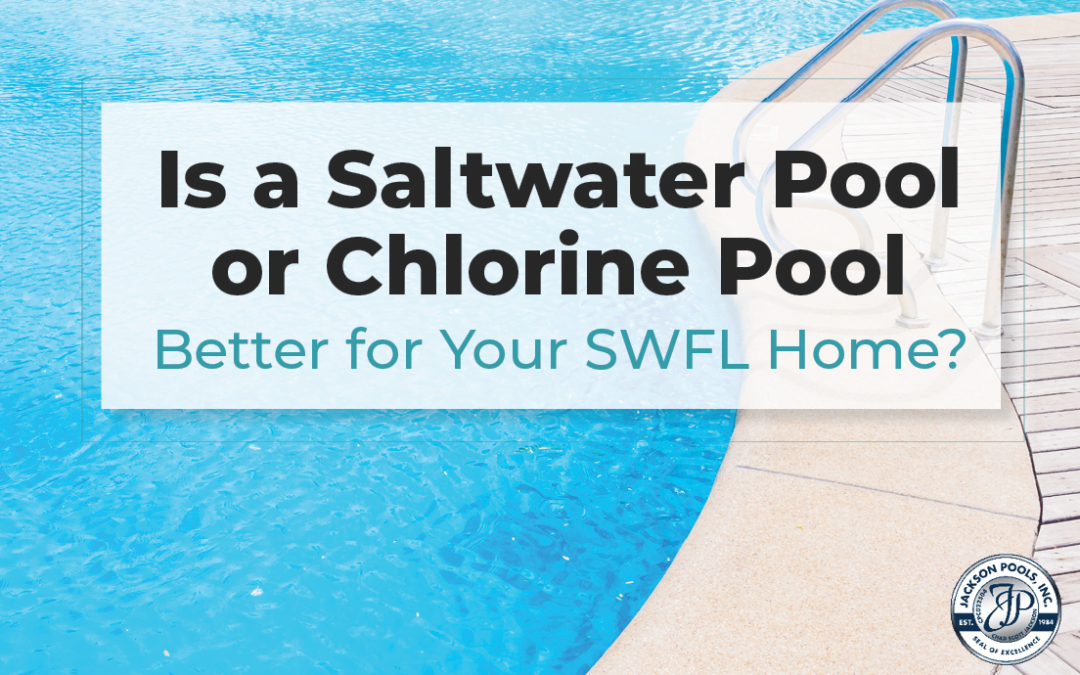When you hear about saltwater pools, it might sound like swimming in the ocean, with buoyant seawater replacing the standard chlorine. This is a natural assumption, but totally incorrect. Saltwater pools are actually nowhere near as salty as seawater – they’re more comparable to the saline solution you might use for your contact lenses – and in fact they do use chlorine! It’s just produced differently from the standard setup.
So which configuration is better for your pool: saltwater or chlorine? Both systems have their pros and cons, from startup costs to maintenance, and everyone has different preferences.
How Does a Saltwater Pool System Work?
As we mentioned, saltwater pools have chlorine in them, but the concentration of chlorine in the water is lower and the way it’s processed is different. The primary component of a saltwater system is a salt chlorine generator. Simply pour pure, high-quality salt directly into the pool water, and as the water flows through the generator, the salt will be converted to chlorine.
Many people say that the water in a saltwater pool feels nicer than a traditionally chlorinated pool, and the chemicals are much less harsh on hair, skin, and eyes. It’s strong enough to keep your water free of contamination, but not so strong as to fade your swimsuits and other gear. Plus, a saltwater system typically requires less upkeep than a chlorine system.
On the other hand, the startup costs for installing a salt water system can be higher. Also, the complexity of a salt chlorine generator means that repairs are less likely to be DIY and more likely to require a hired technician. You’ll also need to make sure that any accessories you add, like a pool cover, are made for saltwater pools, or the salt can corrode them over time.
What are the Pros and Cons of a Chlorine Pool?
Chlorine systems are attractive for families because the startup costs are typically lower and inline chlorinators are also often much easier to repair than a salt chlorine generator. They also avoid the issue of having saltwater corroding various internal parts.
On the other hand, a chlorine pool requires close monitoring to ensure the chemicals are at the right level. In addition, the chemicals can be more expensive to purchase than a few big bags of salt. You’ll also need to pay special attention to washing the chlorine out of your bathing suits and hair, and you may find that your skin and eyes get irritated after spending an afternoon in the water.
Ultimately, the choice comes down to your preference and what you think will work best for your family’s lifestyle. Both chlorine and saltwater pools are built frequently in the SWFL area and are happy to help you talk through options.
If you’re planning to install a pool but don’t know which system to use, give us a call! We’ve been trusted pool experts in Southwest Florida for over 35 years, and we’d love to help you get exactly the pool you want. You can send a message through our websiteor call (239) 495-6700.


Recent Comments